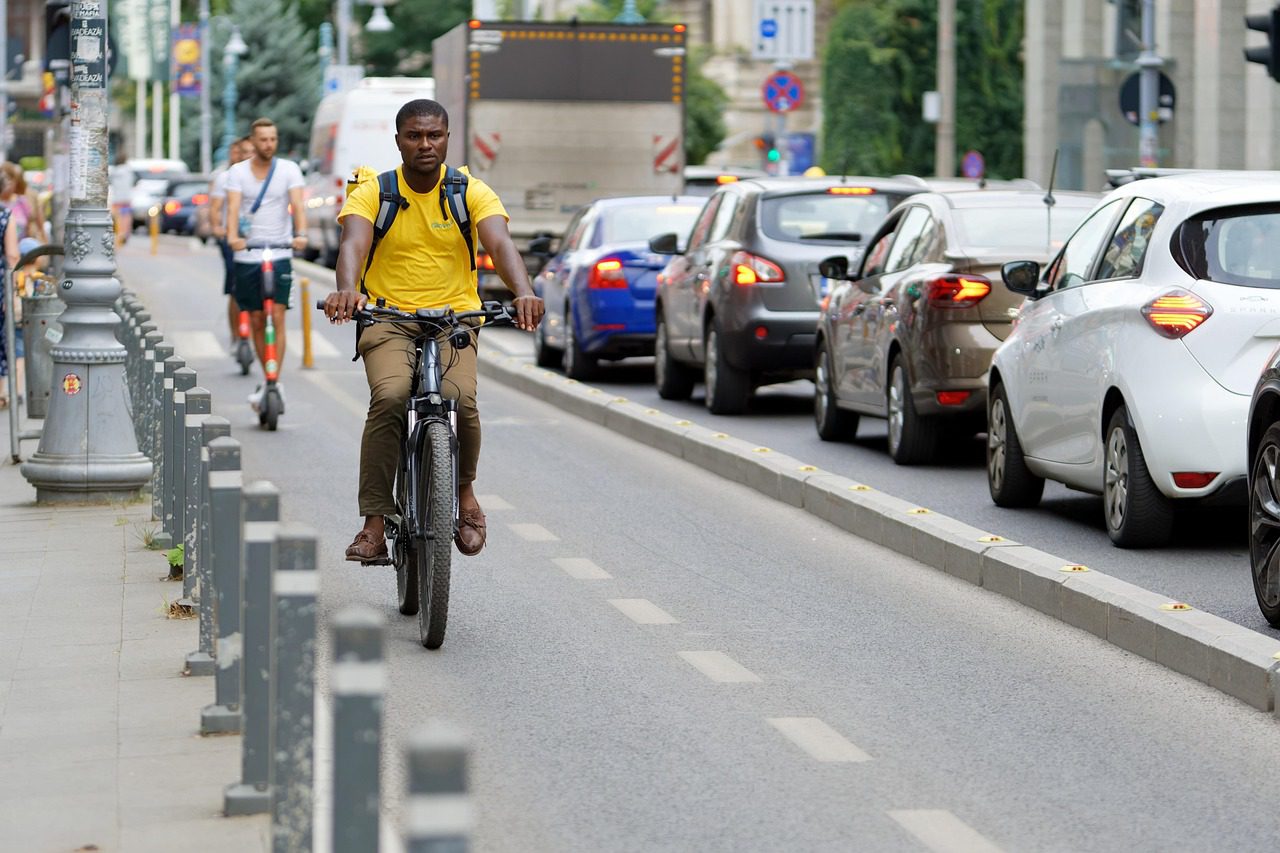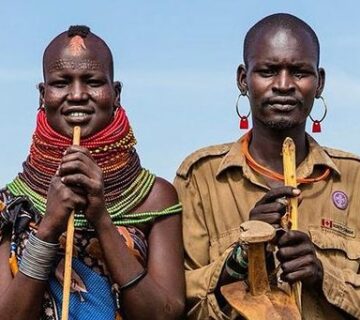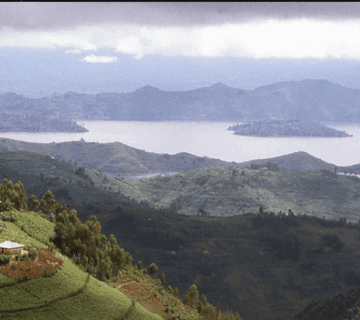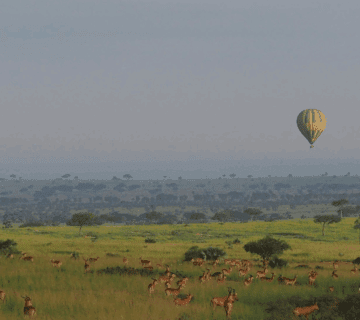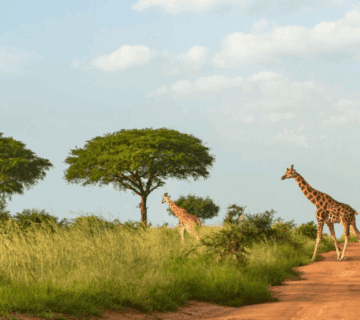What is the Best Backpack for African Travel?
Africa home to untamed wilderness, majestic wildlife, vibrant cultures, and breathtaking landscapes beckons the adventurous soul with a promise of transformation. Whether you’re trekking through the jungles of Uganda, exploring the spice-scented alleys of Zanzibar, or journeying across the golden plains of the Serengeti, your experience can be deeply influenced by one crucial piece of gear: your backpack.
A well-chosen backpack isn’t just a container for your belongings; it’s your silent travel companion, your mobile base, and your lifeline when you’re far from urban comforts. If you’re planning an African adventure, choosing the right backpack is one of the smartest, most important decisions you’ll make.
Understanding the Demands of African Travel
Africa’s terrain is as diverse as its people. In a single trip, you might find yourself walking sandy desert trails, navigating rainforest paths, boarding small bush planes, and crossing bustling city markets. Travel here is rarely linear or predictable. That’s why your backpack needs to be as versatile as the continent itself.
You want a pack that’s sturdy yet comfortable, spacious yet streamlined, and lightweight yet durable. A good backpack for Africa should handle heat, humidity, dust, and the occasional unexpected downpour. It should support your body, keep your essentials organized, and never become a burden.
What to Look for in the Best African Travel Backpack
Having traveled across various African regions from the lush Congo Basin to the highlands of Ethiopia and the coasts of South Africa I’ve come to realize that a backpack must meet a few critical criteria to be ideal for the continent.
1. Size and Capacity (40L to 60L is ideal)
Forget the bulky 80-liter expedition backpacks unless you’re doing a multi-week mountaineering trip. For most African travel, a 40 to 60-liter pack strikes the right balance between being roomy and manageable. You’ll often be hopping on shared taxis, minibuses, or small safari vehicles where space is limited, and a compact pack is far easier to manage. Aim for carry-on size if possible it saves you the hassle of checked baggage and speeds up your transit through airports.
2. Durability and Weather Resistance
Africa can be dusty, muddy, hot, and wet—all in one day. Your backpack should be made of tough, water-resistant materials like ripstop nylon or polyester. Reinforced stitching, quality zippers (like YKK), and a built-in rain cover are all bonuses. I once had a pack soaked during a sudden Tanzanian downpour; only the contents protected by a rain cover stayed dry.
3. Comfort and Fit
Long bus rides, border crossings, and guided treks mean you’ll be carrying your backpack often and for long periods. Look for padded shoulder straps, a hip belt, and an adjustable back system. Try it on fully packed before your trip. A good fit reduces fatigue and strain, especially when walking through national parks or navigating unpaved roads.
4. Organization and Accessibility
When you’re digging for bug spray or your passport in the middle of a border post queue, you’ll appreciate a backpack with smart compartments. Top-loading backpacks are common, but those with a U-shaped front opening (like a suitcase) make it easier to access your items without unpacking everything. Side pockets, a quick-access front pocket, and internal compartments help keep you organized.
5. Security Features
Pickpocketing is a reality in crowded bus stations and touristy areas across the world, and Africa is no exception. Look for lockable zippers and hidden compartments. I recommend using packing cubes for better organization and bringing a small lockable daypack for your valuables.
6. Lightweight Design
Every gram counts when you’re constantly on the move. A lighter pack means you can carry more of what really matters—like water, camera gear, or snacks. Many high-end travel backpacks use lightweight frames and materials without compromising strength.
Top Recommended Backpacks for African Travel
While there are many excellent brands on the market, a few stand out for African travel:
Osprey Farpoint/Fairview Series (40L or 55L)
These are lightweight, durable, and offer the convenience of a suitcase-style opening with the comfort of a hiking pack. The 40L version is carry-on compliant and perfect for shorter trips or minimalist travelers.
Deuter Futura Vario or Aircontact Lite (50L-60L)
Known for comfort and breathability, these packs are ideal for those who expect to do more trekking. The back system is designed for ventilation a huge plus in hot climates.
Tortuga Travel Backpack (40L)
If you’re more of an urban explorer and less of a hiker, this pack’s clamshell opening, padded laptop compartment, and minimalist design might suit your needs better. It’s great for city-to-city travel, especially in Southern and North Africa.
Nomatic Navigator Backpack (Expandable)
A solid choice for digital nomads or travelers who want flexibility. It transitions from a 32L to 41L pack and has weather-resistant materials, tech organization, and an understated look.
Packing Tips for Your African Journey
Having the right backpack is only part of the equation. How you pack it can make a big difference in your comfort and mobility.
Use packing cubes to separate clothing, toiletries, and tech gear. This keeps things neat and saves time when unpacking.
Pack light and stick to quick-dry clothing, a lightweight rain jacket, and versatile layers.
Don’t forget essentials like sunscreen, insect repellent, reusable water bottles, and power adapters.
Bring a small daypack or sling bag for daily excursions something compact enough for wildlife drives or village tours.
Why the Right Backpack Makes All the Difference
The best moments of African travel often happen off the itinerary in a spontaneous village celebration, while hiking with Maasai guides, or waiting for a ferry beside Lake Victoria. In those moments, the last thing you want is to be fussing with a broken zipper or overstuffed bag. The right backpack allows you to move freely, comfortably, and with peace of mind.
Personally, I’ve hiked with chimpanzees in Uganda’s Budongo Forest, crossed the Namib Desert, and kayaked on Lake Malawi all with the same trusty backpack. It’s not just about storage; it’s about having the freedom to experience Africa without distraction.

